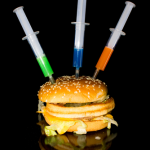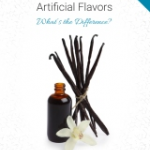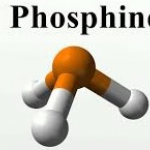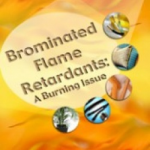Initial reports suggest that Kim Jong-Nam, the estranged half-brother of North Korean dictator Kim Jong-Un, was murdered with VX, a type of agent used in chemical warfare. What is it, and how does it work?
VX is an organophosphate, a generic name for any molecular compound that contains carbon and phosphate (i.e., ions made of phosphorus and oxygen atoms). Organophosphates are found everywhere. Life-giving molecules like DNA are organophosphates, but so are some pesticides and nerve agents. Given the structure of VX (which includes a sulfur atom), it is more specifically a phosphonothioate. (See image on right.)
Chemicals & Chemistry
It's a headline perfectly befitting The Onion. Unlike stories found in the satirical newspaper, however, this one is absolutely true.
The Dakota Access Pipeline, which has replaced Keystone XL as the cause célèbre of the environmental movement, has united Native Americans and political activists in opposition. The merits (or lack thereof) of this infrastructure project are not relevant for this discussion. Instead, let's focus on the activists' incredibly bizarre and destructive behavior.
When you are buying gasoline with a particular octane number, joke's on you. There is little or no octane in there, because octane will blow you engine up. A little primer on anti-knock additives. They're not so great either.
A Chinese group just pulled off something that has eluded chemists for decades. Chemists made and isolated a simple, but highly-unstable creation called pentazole for the purpose of studying it as an explosive. And they didn't even blow themselves up.
Wouldn't it be nice to stroll along your favorite beach and not see the litter of plastic trash all around. In fact, there is a place where you can stroll and not see plastic at all – since the trash consists of millions of seaside gems. All you have to do is go to Siberia.
A study can be fair and balanced. But often once it's in the hands of the media, it's repackaged to capture eyeballs. It is not fake news – it's just misleading, designed to attract attention rather than to educate.
The American Council on Science and Health, since 1978 America's premiere pro-science consumer advocacy non-profit, is pleased to announce our new book, "Natural and Artificial Flavors: What's the Difference?", in order to combat growing confusion about health issues related to food.
During the last decade, it has become increasingly fashionable to tout "natural" on product labels. It isn't just fringe companies that prey on the chemophobia evident among less-informed members of the public, larger brands have also been exploiting consumers in this fashion.
Anyone who searches long enough can find that pretty much everything has been linked to cancer. Bacon. Cell phones. Wi-Fi. Even looking at our video correspondent, Ana Dolaskie. At some point the insanity has to stop. Unfortunately, we have yet to reach that point.
The much-anticipated intelligence report, which concluded that Russia tried to influence the recent presidential election, had another startling, yet widely ignored, conclusion: The Russian government promotes anti-fracking propaganda in the United States, via its "news" network, RT.
Four children died in a a tragic accident in Texas, when a father was simply trying to wash away some pesticide from under his home. But the culprit was the water, and the chemistry is simple.
I am lucky enough to spend the holidays in one of the most beautiful places in the United States - the Northeast Kingdom of Vermont.
Surrounded by stunning natural beauty on all sides - it is incredibly cold, the roads are covered in ice, and the living is uncomplicated. But, when something does happen - such as 50-year-old toxic waste from the ivy league institution down the road creeping into people's backyards - it is big (BIG) news up here.
And, that is exactly the story that the neighbors of Dartmouth College are trying to bring everyone's attention.
Who has the safest furniture in America? Apparently poor people.











